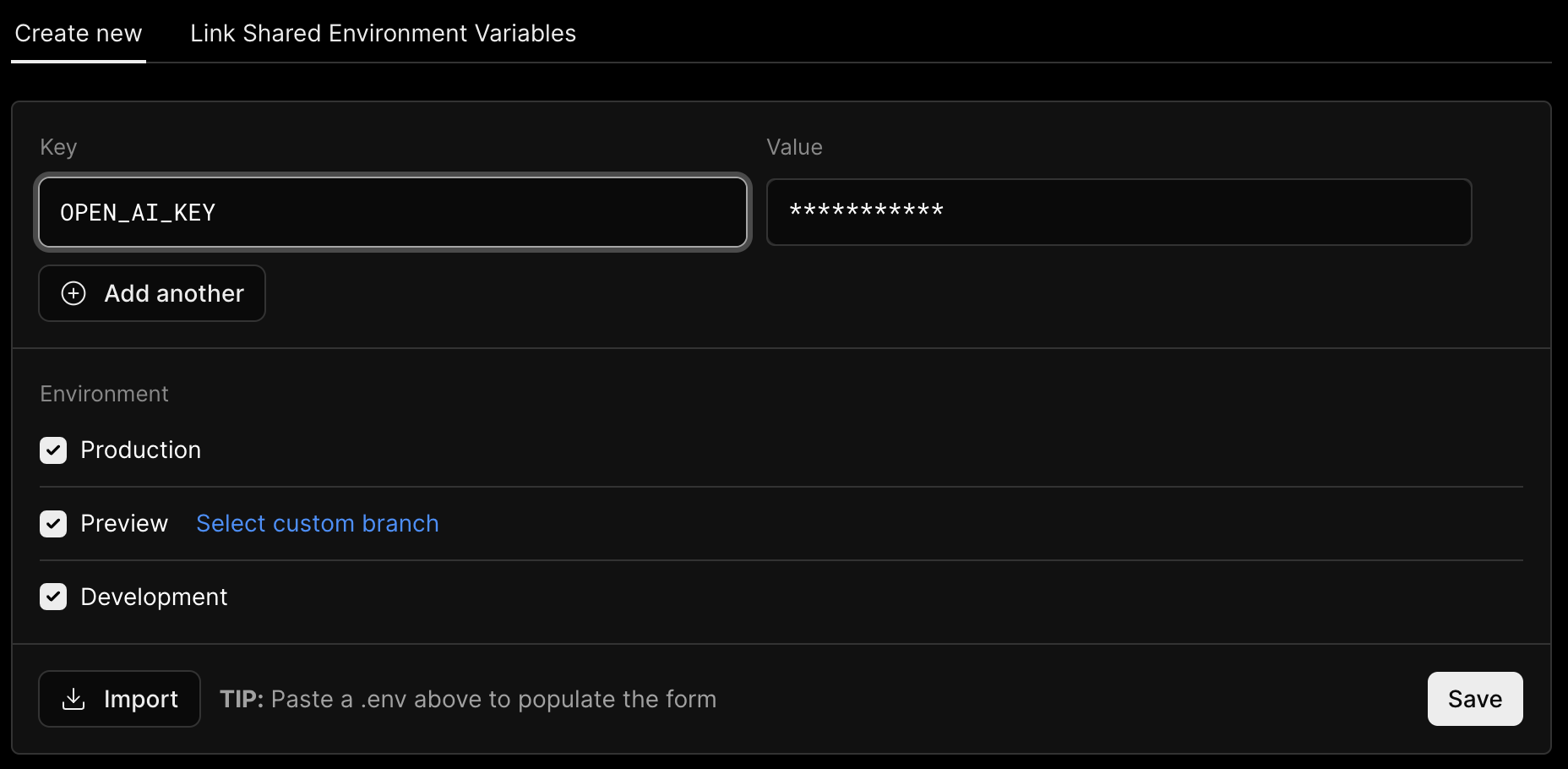This starter is based on figma ai template. Added more libs and linters to make DX better.
Choosing a technology stack is a very subjective matter, if you happen to like using Vite, React,Tailwind, TS and shadcn ui and more to build Figma plugins, then give it a try.
Clone this repo or create a repo based on this starter on Github
yarn
yarn devWe prefer Yarn as package manager, If you want to use pnpm or npm, feel free to use
- nextjs
- shadcn ui
- react-lucide
- react-query
- tailwindcss
- less
- postcss
- eslint/stylelint
- prettier
- svgr
- editorconfig
- husky/lint-staged
- commitlint
In this example we will be publishing the Next.js app to Vercel. You can also publish to any other hosting provider that supports Next.js.
- If you haven't already, push your code to a git repo on GitHub.
- Create an account on Vercel and connect your GitHub account.
- Deploy your app to Vercel. You can follow the guide here.
- While deploying make sure to set the environment variable
OPENAI_API_KEYto your OpenAI API key. - Once your app is deployed you can update the
siteURLsection of yourpackage.jsonfile to point to the deployed URL. It will look something likehttps://your-site-here.vercel.app/
"config": {
"siteURL": "https://your-site-here.vercel.app/"
}- Run
npm run buildto create the production build of your plugin that points to your deployed URL. - Test your plugin locally and make sure that it works after pointing to vercel.
- Publish your plugin to community
- After publishing to community your plugin will update automatically when you push to your git repo.
This template includes a figmaAPI helper at @/lib/figmaAPI that lets you run plugin code from inside of the iframe. This is
useful for avoiding the iframe <-> plugin postMessage API and reduces the amount of code you need to write.
Example:
import { figmaAPI } from "@/lib/figmaAPI";
const nodeId = "0:2";
const result = await figmaAPI.run(
(figma, { nodeId }) => {
return figma.getNodeById(nodeId)?.name;
},
// Any variable you want to pass to the function must be passed as a parameter.
{ nodeId },
);
console.log(result); // "Page 1"A few things to note about this helper:
- The code cannot reference any variables outside of the function unless they are passed as a parameter to the second argument. This is because the code is stringified and sent to the plugin, and the plugin evals it. The plugin has no access to the variables in the iframe.
- The return value of the function must be JSON serializable. This is because the result is sent back to the iframe via postMessage, which only supports JSON.
